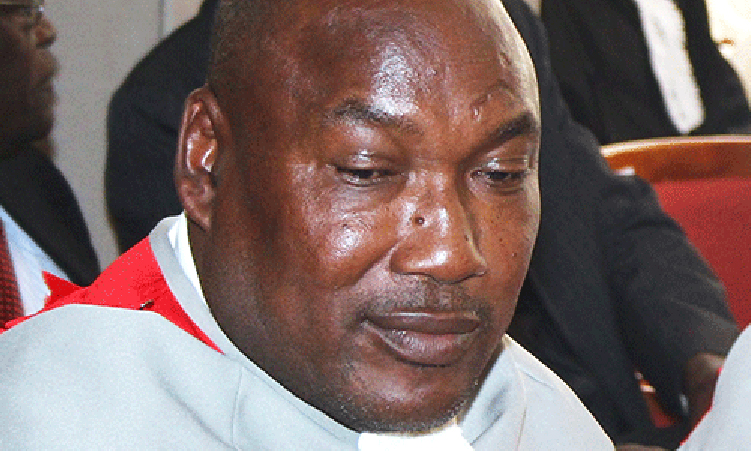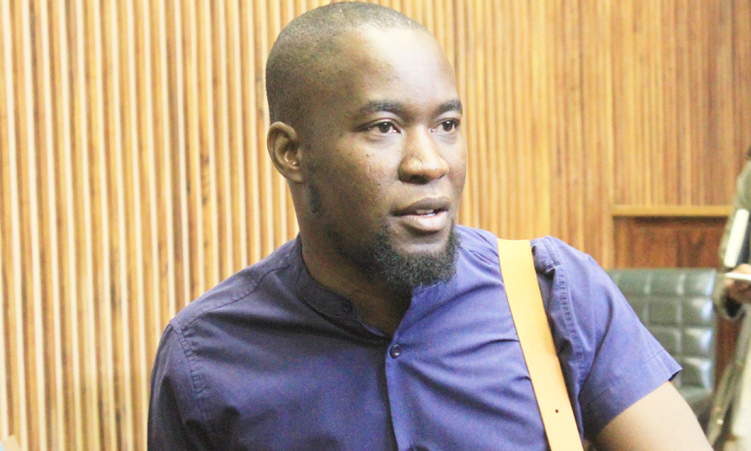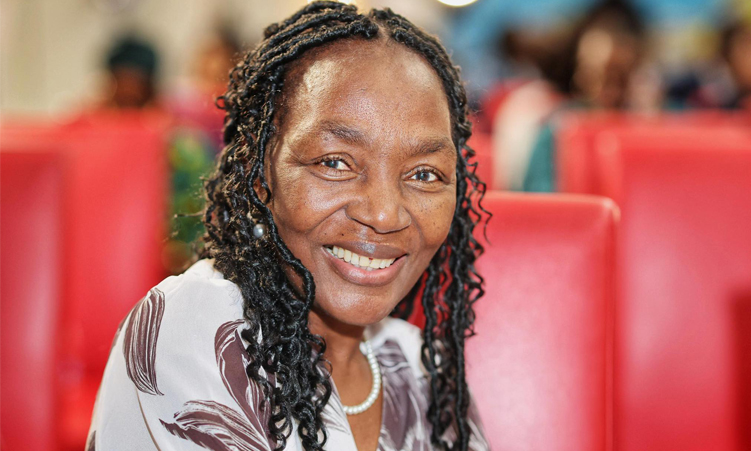Affirmative Repositioning leader Job Amupanda says he will appeal to the Supreme Court after losing the case in which he tried to have Namibia’s veterinary cordon fence declared unlawful and unconstitutional.
“We are definitely going to the Supreme Court to appeal [against] this judgement,” Amupanda said after judge Shafimana Ueitele yesterday in effect dismissed his attempt to force the government to remove the veterinary cordon fence, also known as the redline.
“This thing [the redline] will fall, and all those people that are defending the colonial instrument, we will come back to them and tell them that we told you so,” Amupanda said in a message on social media.
In the ruling that he delivered in the Windhoek High Court yesterday, Ueitele granted an application for the defendants cited in Amupanda’s claim to be absolved from having to present to the court testimony that they have lined up for their opposition to his claim.
The effect of the ruling is that Amupanda, who was the only witness to testify in support of his claim, has failed to get past the hurdle of showing the court that he has presented evidence on which the court could grant the orders he applied for.
Amupanda claimed the veterinary cordon fence is a colonial instrument that is unconstitutional, and that the fence is discriminatory and results in people living north of the fence being treated differently from people living south of the fence.
He asked the High Court to declare that the erection of the fence was not carried out in terms of any law and is unconstitutional, and also asked the court to order the government to remove the fence immediately or within a period of 90 days.
According to the government, though, the veterinary cordon fence was erected for legitimate and rational purposes.
In a plea in response to Amupanda’s claim, the government stated that the fence “serves a perfectly rational and constitutionally permitted object”, which is to prevent and control the movement and spreading of animal diseases in and throughout Namibia.
The government also denied Amupanda’s allegation that the fence is aimed at restricting predominantly black people who live north of the redline.
According to the Livestock and Livestock Products Board of Namibia, which opposed Amupanda’s claim, preventing and controlling the spreading of animal diseases throughout Namibia is of vital importance for Namibia’s meat industry and ensures that meat products from the part of Namibia classified as free of foot-and-mouth disease can be exported to premium international markets.
In his ruling, Ueitele noted that the legal counsel who represented the government, the minister of agriculture, water and land reform and the attorney general put it to Amupanda when he was cross-examined that the veterinary cordon fence is authorised by the Animal Diseases and Parasites Act of 1956 and the Animal Diseases and Parasites Ordinance of 1959.
Based on that, Ueitele found that Amupanda failed to place sufficient evidence before the court on which the court could find the fence was not authorised by any law.
On Amupanda’s claim that the fence violates the right to dignity of people travelling from the north and being subjected to routine searches for animal products, which may not be taken south through the fence, Ueitele noted the only evidence Amupanda presented on this aspect of his case was that his vehicle was searched at a checkpoint at Oshivelo on 17 May 2021 and that meat was confiscated from him.

Ueitele also said Amupanda “did not place a single shred of evidence” before the court to show how the search of his vehicle, which he conceded to, violated, disrespected or was inconsistent with his intrinsic worth. Amupanda’s testimony that people living south of the fence are treated differently from people living north of the fence was “poor, vacillating and of so romancing a character that I cannot place reliance on it”, Ueitele remarked as well.
He added: “Mr Amupanda has not placed a single piece of evidence before the court to demonstrate how irrational and arbitrary the government acts when it restricts the conveying of animal products from one [foot-and-mouth disease control] zone to another zone.”
Ueitele started his judgement with references to claims and allegations Amupanda made on social media in early February, after his testimony and arguments on the defendants’ application for absolution from the instance had been heard.
In light of Amupanda’s claims and allegations against Ueitele and his family and about the judiciary, Ueitele said he considered whether he should recuse himself from Amupanda’s case about the veterinary cordon fence.
Ueitele said Amupanda’s allegations “were simply efforts calculated to cow me from objectively and impartially determining the matter”, and were a clear violation of the constitutional provision that no one should interfere with judges in the performance of their judicial functions.
However, a fair-minded and informed observer would not, on the basis of Amupanda’s allegations, conclude there was a real possibility or danger that the judge would be biased, Ueitele said.
He also said: “Courts are not theatres of amusement to elevate hedonism. Courts must be respected by their officers and those privileged to have the right of audience. Courts and judges cannot engage in political theatrics.”
In the remarks he made after the delivery of the ruling yesterday, Amupanda said: “We are not surprised. As far as we are concerned there was no fair trial, there was a miscarriage of justice. […] This is personal, it’s not about justice at all.”
Stay informed with The Namibian – your source for credible journalism. Get in-depth reporting and opinions for
only N$85 a month. Invest in journalism, invest in democracy –
Subscribe Now!










